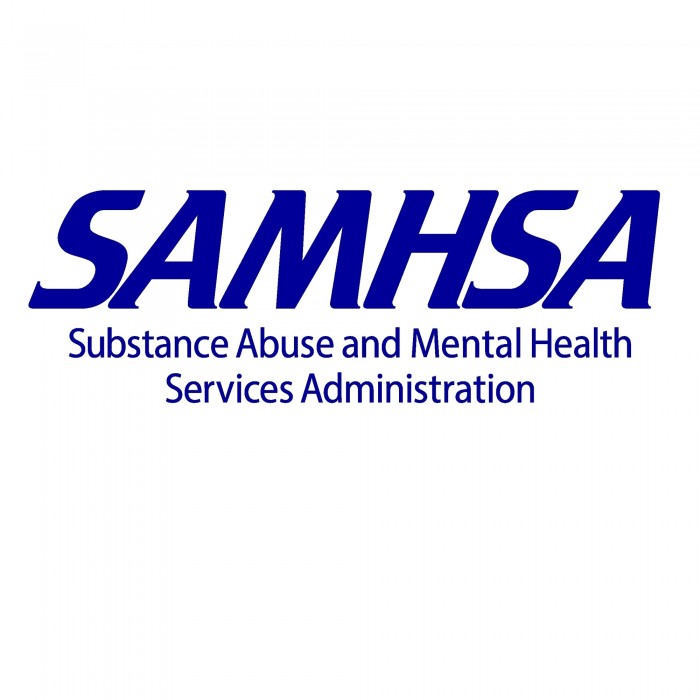Office of Developmental Programs Individual Transition Guide
PA Act 18 Approved for Fingerprinting Relief
In an effort to provide temporary relief for individuals in need of FBI fingerprinting as part of the Child Protective Services Law, Governor Wolf has approved legislation — formerly HB 360 and now ACT 18 — that allows temporary fingerprinting flexibility where Identogo sites are not available. In a phone call today with the Office of Children, Youth and Families (OCYF) Planning Committee, it was discussed that OCYF expects to release the guidance this week with some noted limitations as outlined below.
Existing Employees – Have until December 31 to get fingerprints for those whose checks have expired since March 2020. Still need PSP and Child Abuse Checks completed.
For new employees, if you have not been a resident in PA within the past 10 years, you must also provide Child Abuse clearances from prior states of residence. New hires also sign a disclosure statement (attestation form).
New hires have until December 31, or 60 days from end date of state of emergency as directed by Governor Wolf, to get fingerprinting done. Individuals must still make reasonable efforts to complete checks at your local Identogo site if it is open.
Further direction and comment will be forthcoming from RCPA after the OCYF guidance is released. If your agency or staff are having difficulty in obtaining fingerprints, or if you are looking for Identogo mobile sites or resources, please contact RCPA Children’s Director Jim Sharp.
Updates to CMS COVID-19 Emergency Declaration Blanket Waivers for ICF/IDD Facilities
SAMHSA Personal Protection Letter for Treatment Providers
The Substance Abuse and Mental Health Services Administration (SAMHSA) has drafted a letter for mental health and drug and alcohol providers to use when they are trying to secure personal protective equipment (PPE). The letter designates mental health and drug and alcohol providers as essential, so please use the SAMHSA letter when trying to procure PPEs from suppliers. Questions, please contact Jack Phillips.
DHS Supports Child Care Providers’ COVID-19 Mitigation Efforts as Counties Transition to Reopening
Harrisburg, PA – As child care providers across Pennsylvania reopen in counties transitioning to the yellow phase in Governor Tom Wolf’s reopening plan, the Department of Human Services (DHS) is committed to supporting this crucial industry and the families of young children who depend on it.
To slow the spread of the COVID-19 virus and prevent loss of life, Governor Wolf issued a statewide stay-at-home order April 1; however, the order allowed DHS’ Office of Child Development and Early Learning (OCDEL) to implement a waiver process for child care centers serving families of essential workers. Family and group child care homes operating in a home setting were also allowed to remain in operation under the governor’s order.
As of May 5, approximately 1,529 child care providers continue to operate in Pennsylvania. This includes 626 child care centers and 903 group and family child care homes.
When a county moves to the yellow phase in the governor’s plan, all child care providers are permitted to reopen without a waiver. The Department of Human Services is prepared to support child care providers and Pennsylvania families throughout the reopening process.
Child care providers preparing to open must familiarize themselves with and be prepared to implement guidance issued by the Centers for Disease Control and Prevention, which outlines the steps providers should take to keep child care spaces safe and to properly monitor staff and children for potential exposure to and symptoms of COVID-19.
The Early Learning Resource Centers (ELRCs) also remain available to families throughout Pennsylvania during this period. ELRCs can help families locate an operating child care provider in the community, determine eligibility for the Child Care Works subsidy program, and provide referrals to other supportive programs and services.
Child Care Works payments will continue to providers with active enrollments through the end of May. These payments will be made based on active enrollment, not child attendance.
OCDEL will continue to communicate regularly with providers. Communications from OCDEL can be found on the DHS website or through the Pennsylvania Key.
“Child care providers in counties moving to the yellow phase are not required to open, and families may still choose to keep their child at home,” Secretary Miller said.
OLTL Services in Counties Designated by the Governor as Yellow Phase
On May 1, 2020, Governor Wolf announced that 24 counties from the northwest and north-central regions of Pennsylvania would be moving from red phase to yellow phase beginning Friday, May 8, 2020 as part of the Wolf administration’s process to reopen PA. This marks a reduction in some restrictions on work and social interactions. However, restrictions related to congregate care settings remain in place.
The following counties moved from red phase to yellow phase on May 8, 2020: Bradford, Cameron, Centre, Clarion, Clearfield, Clinton, Crawford, Elk, Erie, Forest, Jefferson, Lawrence, Lycoming, McKean, Mercer, Montour, Northumberland, Potter, Snyder, Sullivan, Tioga, Union, Venango, and Warren.
These counties were deemed ready to move to the yellow phase because of low per-capita case counts, the ability to conduct contact tracing and testing, and appropriate population density to contain community spread.
OLTL Services in Counties the Governor Declares in the Yellow Phase
Moving from the red phase to the yellow phase does not change any guidance that has been issued by OLTL or the Community HealthChoices (CHC) managed care organizations (MCO). All conditions outlined in the guidance noted below continue to apply to each provider category.
| Home and Community-Based Services | CHC Waiver Operational Guidance and the OBRA Waiver Operational Guidance including remote initial level of care assessments, Service Coordinator contacts, person-centered service plan development and provision of service. |
| Nursing Facilities
|
Clarification Guidance for Pennsylvania Pre-Admission Screening Resident Review (PASRR), the Interim Guidance on Visitation in Nursing Facilities During COVID-19, and Guidance for Infection Control and Prevention |
| Living Independence for the Elderly (LIFE) | LIFE Provider Guidance Related to COVID-19 |
| Assisted Living Residences and Personal Care Homes | Interim Guidance on Visitation in Nursing Facilities During COVID-19,the Guidance for Infection Control and Prevention, the Guidance Suspending and Restricting License Requirements for Personal Care Homes and Assisted Living Residences, and Visitation Restrictions in Personal Care Homes and Assisted Living Residences |
Providers are encouraged to continue to monitor the Department of Health (DOH) COVID-19 website for the most up-to-date DOH guidance on COVID-19, the Department of Human Services (DHS) COVID-19 website for the most up-to-date DHS guidance on COVID-19, and Governor Wolf’s website for responding to COVID-19 in Pennsylvania.
OLTL will continue to evaluate the steps necessary to address the Governor’s plan to reopen PA and communicate updated guidance as the situation evolves.
If you have questions about the information in this ListServ email, please contact the OLTL Provider Helpline at 800-932-0939.
Office of Developmental Programs Individual Transition Guide
OMAP Offers Guidances On MATP
The Office of Medical Assistance Programs (OMAP) has released two separate guidances related to Medical Assistance Transportation Program (MATP) services during the Corona Pandemic. The purpose of these communications are to advise all county administrators, brokers, and all contracted transit agencies (collectively referred to as MATP agencies) of the precautions necessary to ensure safe provision of non-emergency medical transportation services to Medical Assistance beneficiaries while the Governor’s Proclamation of Disaster Emergency issued on March 6, 2020, remains in effect.
Delay Approved for Implementation of Family First Prevention Services Act Until July 2021
Harrisburg, PA – The Wolf Administration today announced that approval was received from the United States Department of Health & Human Services’ Administration for Children and Families to delay opting into full implementation of the Family First Prevention Services Act until July 1, 2021, to give child welfare stakeholders the necessary time to implement these critical reforms.
The Family First Prevention Services Act is a federal law that prioritizes providing services to children in families in the least restrictive manner and with their families as much as safely possible. It allows states to use federal payments for trauma-informed evidence-based prevention services to allow children who may otherwise be placed in congregate settings care to stay with their parents or relatives. In the event placement outside the home occurs, the law directs federal funding towards family-like settings or other specialized settings that are best suited to a child’s individual needs.
The additional time will allow for interested providers for specialized settings to apply or to adjust their programs under the Family First Prevention Services Act. Specialized settings are trauma-informed child residential facilities or supervised independent living programs specializing in providing care and treatment for children and youth with special circumstances.
Furthermore, the delay will support our efforts to build additional evidence-based prevention programs used by counties in a way that safely keeps families together, allows for staffing and data needs to be met, and will not result in the loss of federal funds.
DHS previously released a bulletin with guidance and requirements for providers that wish to become a specialized setting.
RCPA will continue to be represented on the Statewide Family First Task Force and will continue to update members on the new implementation process, timelines, and progress status. If you would like to discuss your organization’s Family First plan or if you have questions, please contact RCPA Children’s Division Director Jim Sharp.
















